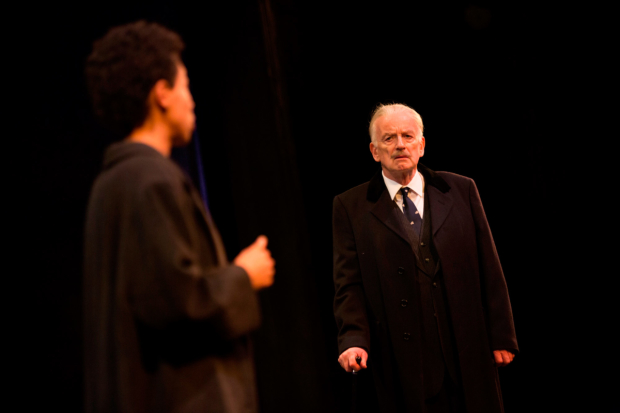Why theatre criticism is actually impossible
Matt Trueman looks at what is more important in theatre – ideas or expression?

© Ellie Kurttz
Here’s the thing about theatre criticism: it’s impossible.
Whenever I’m teaching criticism, that’s what I tell my students. It’s impossible. A review can never say all it wants to say, be all it wants to be or do all it wants to do. Word counts and deadlines get in the way, but so, really, does language. A review can’t give a full account of a performance. It can’t capture the fullness of an actor’s voice or the particularity of a look. It can’t trace every half-thought that swims up from your subconscious while watching a play or convey every connotation contained therein. Criticism can only give an impression of art.
When I started writing about theatre, a decade ago, I was so certain of what theatre should be and do
That means making choices – deciding on the impression you’re trying to give. Every time you sit down to write, every time you stare down that blank Word doc, you have to chose your tack – what to mention; what to hone in on; what to pull out; what to skim over. That, I tell student critics, is what keeps it interesting: impossibility.
There’s another side to that, and it’s this – there is no one way to judge a piece of theatre. Obvious, I know, but it bears repeating. Different shows set out to do different things in different ways, in different contexts, for different audiences.
You can’t judge the new Katie Mitchell in the same way you’d judge the new Disney musical, and you can’t judge a young company’s first Edinburgh Fringe show as you would Deborah Warner’s third King Lear. As a critic, you have to take each show on its own terms.
That can be destabilising. When I started writing about theatre, a decade ago, I was so certain of what theatre should be and do – and, more often, what it absolutely shouldn’t. Such is the conviction of arrogant, adamant youth, certain it knows best. I’d write off any show that didn’t subscribe to those terms – my terms.
You can’t judge the new Katie Mitchell in the same way you’d judge the new Disney musical
To some extent, I still do, but I’ve softened with time, opened up to other ways, other styles and other tastes. Fairness means accommodating variety, but in the process, you sometimes feel you’re losing touch with yourself. In respecting the range of artists working today, and the ecology of an art-form that caters for a range of audiences, your own tastes can take a back seat. Sometimes reviewing feels like waving things through. Most things succeed on their own terms, after all – at least, very few things fail as such. Taste is whether one accepts (or tolerates) those terms.
When your standards shift every night, it can feel disorientating. What, I’ve sometimes wondered, am I actually judging theatre on?
One answer is its ideas: the fresh thinking a show contains, the things it adds to a conversation, the way it reveals the world anew. Two shows did that for me last week: Chris Hannan‘s What Shadows set up a delicate (and necessary) debate about the racist rhetoric around immigration, while Kandinsky’s Still Ill drew a link between psychosomatic illness and the effect our virtual lives have on the real world. Both were thrillingly clever, fascinating and insightful evenings spent examining the world in which we live, well worth recommending – and yet both fell short as theatre. Their narratives were tangled; their staging, flat.
Criticism should seek to judge the ‘theatreness’ of theatre
On the other hand, Michael Longhurst‘s revival of Amadeus at the National is a glorious watch – sumptuous, characterful and, on occasion, breaktaking in its beauty – but it offers little by way of surprise. I couldn’t wish to see Peter Shaffer’s play better staged, but ultimately it confirmed everything I expected of that play. There’s a line in Rachel Cusk’s novel Outline, about a playwright struggling with writers’ block: "Why go to the trouble of writing a great long play about jealousy when ‘jealousy’ just about summed it up?"
So then, which is more important: the quality of thinking or the expression of it? Express a boring old idea beautifully and what’s the point of the show? Express a brilliant new idea untheatrically, and what’s the point of the show?
Great theatre must have both – and it must marry the two entirely. I’ve heard theatremakers resist the pressure of saying what a particular show is about. Were it possible to say as much, to reduce a show to its message, why go to the trouble of making a piece of theatre at all? The best theatre happens when idea and expression are indivisible.
That, I think, is what criticism should seek to judge: the ‘theatreness’ of theatre. As I said, it’s impossible. That’s what keeps it interesting.












